 Actividades
Actividades
Seminario: Probable evidence of a finite-time singularity of the axisymmetric Euler equations for perfect fluids.
Sergio Rica, Instituto de Física, Pontificia Universidad Católica de Chile.
Miércoles 8 de noviembre de 2023, 13:40 hrs. (Presencial en Auditorio Edificio San Agustín; Link Zoom disponible escribiendo a Esta dirección de correo electrónico está siendo protegida contra los robots de spam. Necesita tener JavaScript habilitado para poder verlo.)
ABSTRACT
The search for singular solutions of the axisymmetric Euler equations is realized by expanding the vorticity and swirl velocity in the base of Legendre polynomials. This leads to an infinite non-linear hierarchy of ordinary differential equations (ODEs). In this seminar, we show the numerical robustness of solutions of the truncated hierarchy of the ODEs.
Seminario: "Ecología desde principios primarios (Ecology from first principles)"
Pablo A. Marquet, Facultad de Ciencias Biológicas, Pontificia Universidad Católica de Chile.
Miércoles 11 de octubre de 2023, 13:55 hrs. (Presencial en Auditorio Edificio San Agustín; Link Zoom disponible escribiendo a Esta dirección de correo electrónico está siendo protegida contra los robots de spam. Necesita tener JavaScript habilitado para poder verlo.)
ABSTRACT
En esta charla se presentará una visión general del desarrollo de teorías en ecología, los problemas que se enfrentan y la importancia de desarrollar teorías basadas en principios primarios y expresables en el lenguaje de las matemáticas. Se mostrarán algunos ejemplos de teorías basadas en principios primarios (procesos de nacimiento y muerte) para el caso de la teoría de Biogeografía Insular y la teoría neutral de la biogeografía.
Seminario: "Modelamiento de la evaporación de líquidos criogénicos en tanques de almacenamiento"
Felipe Huerta, Departamento de Ingeniería Química y Bioprocesos, Pontificia Universidad Católica de Chile.
Miércoles 24 de mayo de 2023, 13 hrs. (Presencial en Auditorio Edificio San Agustín; Link Zoom disponible escribiendo a Esta dirección de correo electrónico está siendo protegida contra los robots de spam. Necesita tener JavaScript habilitado para poder verlo.)
ABSTRACT
Los líquidos criogénicos se definen como sustancias con un punto normal de ebullición inferior a -150 °C. Entre los líquidos criogénicos, el gas natural licuado (GNL) y el hidrógeno líquido (LH2) destacan por su rol predominante en la transición energética. Los líquidos criogénicos son almacenados en tanques térmicamente aislados con el fin de minimizar el ingreso de calor desde los alrededores. El ingreso de calor produce la evaporación del líquido, así como también la convección natural y estratificación térmica del vapor generado. El vapor generado por la evaporación del líquido criogénico se denomina boil-off gas (BOG), y su manejo plantea desafíos tecno-económicos, ambientales y de seguridad de procesos. En este proyecto de investigación se han desarrollado nuevos modelos físico-matemáticos aplicables a la evaporación de líquidos criogénicos almacenados en tanques en condiciones isobáricas.
La principal aplicación de almacenamiento isobárico de líquidos criogénicos es el envejecimiento de GNL en tanques grandes. Para este sistema, un nuevo modelo de no-equilibrio unidimensional (1-D) se ha desarrollado. Este modelo incluye un submodelo realista de la transferencia de calor en la fase vapor, que considera el calentamiento por las murallas del tanque, conducción y advección. Los resultados de las simulaciones muestran que la advección es el mecanismo dominante de transferencia de calor. Los supuestos del modelo 1-D fueron validados numéricamente mediante el desarrollo un modelo bidimensional (2-D) de dinámica de fluidos computacional (CFD). Las simulaciones obtenidas con el modelo 2-D muestran que la estratificación térmica amortigua la convección natural en el vapor. Finalmente, soluciones analíticas del modelo 1-D fueron desarrolladas bajo el supuesto de estado pseudoestacionario. Las soluciones analíticas clarifican las fuerzas motrices que gobiernan la evaporación, y constituyen una herramienta que facilita el manejo del boil-off gas.
Congreso Mujeres Matemáticas WoMaths
El encuentro, que se realiza en el marco del Día Internacional de la Mujer en Matemáticas (12/5), busca visibilizar la labor de las mujeres en el área, con el fin de que su trabajo sirva de motivación e inspiración para estudiantes de pregrado y postgrado que estén interesados/as en seguir una carrera de investigación en esta área.
El evento contará con la participación de investigadoras nacionales e internacionales que ofrecerán charlas, plenarias y cursillos. Los contenidos de estas actividades están relacionados con diversas áreas afines a las matemáticas, incluyendo álgebra, física matemática, geometría, sistemas dinámicos, matemáticas aplicadas y educación matemática.
Fecha: 10 al 12 de mayo.
Sedes: Universidad Católica (Campus San Joaquín); Universidad de Santiago de Chile (Usach), Universidad de Chile.
Instituciones organizadoras: Centro de Modelamiento Matemático (CMM), Facultad de Matemáticas UC, Instituto de Ingeniería Matemática y Computacional (IMC), Universidad de Chile, Universidad de Santiago de Chile.
Para más información, hacer clic aquí.
Seminario: "New perspectives in artificial intelligence for computational engineering & data-centric paradigm"
Paul Escapil-Inchauspé, Data Observatory.
Miércoles 31 de mayo de 2023, 13 hrs. (Presencial en Auditorio Edificio San Agustín; Link Zoom disponible escribiendo a Esta dirección de correo electrónico está siendo protegida contra los robots de spam. Necesita tener JavaScript habilitado para poder verlo.)
ABSTRACT
Over the last 8 years, the usage of AI-based solutions such as deep learning in mathematical and computational engineering has experienced considerable growth in popularity, providing practitioners with new opportunities and approaches for performing simulations.
In this presentation, we analyze the data-centric paradigm outlined by Zha et al., with an emphasis on its implications for research and industry. We also consider what effects it may have on the fields of mathematical and computational engineering, along with the new prospects and trends it may create.
In particular, we present physics-informed machine learning (PIML) as a novel framework in computational mathematics and engineering. PIML couples observations with domain/physics knowledge in a single system, proving to be efficient for multi-physics, high-dimensional, and noisy problems. In particular, we explored physics-informed neural networks (PINNs) in greater detail.
We discuss the practical implementation of existing approaches, their strengths and limitations, and comment on current trends and future research opportunities in these areas.
